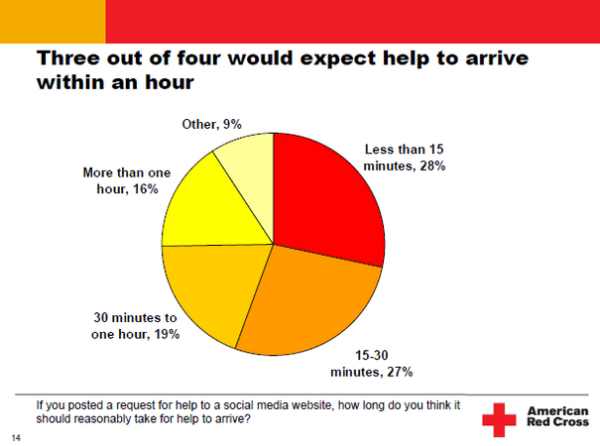Web users are increasingly relying on social media for help in the event of disaster, according to a new report by the American Red Cross.

Many Web users said they would use social media to seek help for themselves or others during emergencies, the report said, and those users expect first responders to be listening. Almost three out of every four responders said they would expect help to come less than an hour after their first tweet or Facebook post.
The survey showed that 69 percent said that emergency responders such as FEMA and the Red Cross should be monitoring social media sites in order to quickly send help.

But opinion is interestingly divided over the question of whether emergency responders are already monitoring social media. Forty-nine percent said they believe a response agency is probably already responding to any urgent request they might see, and 44 percent answered “it’s very likely the organization doesn’t even know about this request.”
The Red Cross commissioned the survey in advance of an Emergency Social Data Summit set for Thursday, August 12, in Washington, D.C. The meeting will facilitate discussion between representatives of government, social media, emergency response agencies and the non-profit sector about how to handle information that flows through the Web during a disaster.
Social media has proved a fast, reliable way to get information from the ground – exactly what’s needed in an emergency. The Red Cross emphasized that the first course of action in an emergency should be to call 911, but that social media is a good backup when phone lines are down or 911 is backed up.
“The social web is creating a fundamental shift in disaster response – one that will ask emergency managers, government agencies and aid organizations to mix time-honored expertise with real-time input from the public,” said Gail McGovern, American Red Cross president and CEO. “We need to work together to better respond to that shift.”
















